Problems that arose earlier this year at the company’s sole-source operation in Mexico contributed to its decision to cease operations
CLAREMONT, N.C. — For the past 30 years, Progressive Furniture has established a solid sourcing relationship with Mexico case goods manufacturer Baja Wood Internacional.
It was that partnership that ultimately led to Progressive’s demise, which was revealed to its sales force last week when the company announced it was planning to close its doors by year end after some 40 years in business. In addition to challenges experienced by its manufacturing partner, it cited a soft business environment and the closings of key retail accounts as contributing factors.
Yet its long-term relationship with its Mexico manufacturing partner was a key that could become a case study in global sourcing as it represents both the benefits and perils of working with a sole manufacturer in a single country.
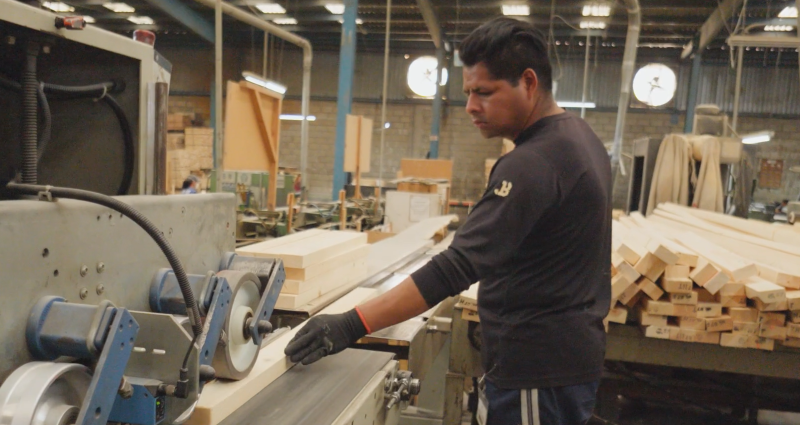
Progressive sourced lower-middle to midpriced wood furniture from Baja Wood for the past three decades. The partnership became so solid that not only had Baja Wood become the company’s principal wood factory in Mexico, but Progressive also was the manufacturer’s primary customer in the U.S.
According to Progressive President Dan Kendrick, the factory up until recently produced some 60% of the company’s volume, primarily in bedroom and home entertainment furniture.
“For the past 30 years, it’s been great,” Kendrick told Home News Now in late January following reports the publication heard at the Las Vegas Market that the plant had recently shut down. “But in the new era that we are in, it is probably not the smartest model to have.”
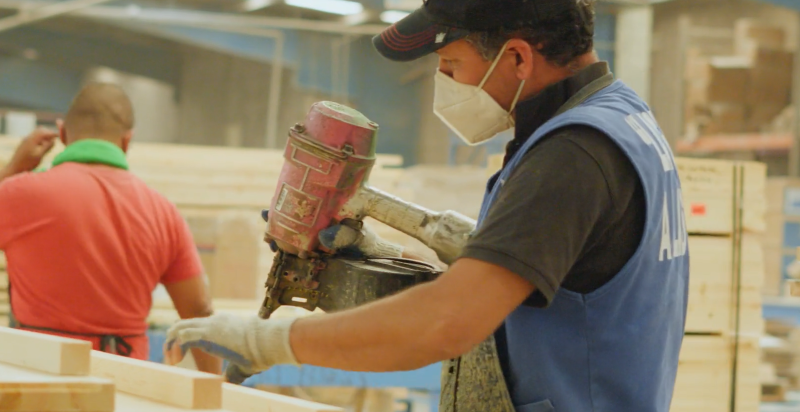
It was a scenario that reportedly concerned officials at Progressive owner Sauder Woodworking who feared what could happen if things went south for either party.
That happened this past January when a group of some 50-60 or so of its 320 workers held a protest outside the factory that was covered by local media. They were reportedly upset that they were continuing to work under reduced hours, or short time, a situation that persisted after as much as eight months.
This shut down the factory as government labor officials were called in to investigate the situation, a lengthy process that involved interviewing every employee at the plant. As the inquiry came to a close, however, the plant owner decided not to reopen.
While this situation played out, the U.S. government was threatening tariffs of up to 25% on Mexico, a situation that got delayed from February to early March. In early March, when the tariffs were supposed to take effect, the Trump administration decided to delay implementation until April 2 as the two countries worked out a plan.
While Kendrick did not tie the plant closing directly to the tariffs, he said they did complicate matters.
“I am not in any way going to say that this was due to the tariffs, but it did impact the decision,” he said, noting that while some orders had been on hold, “Because of the short duration of the tariff each time, we were able to keep shipping.”
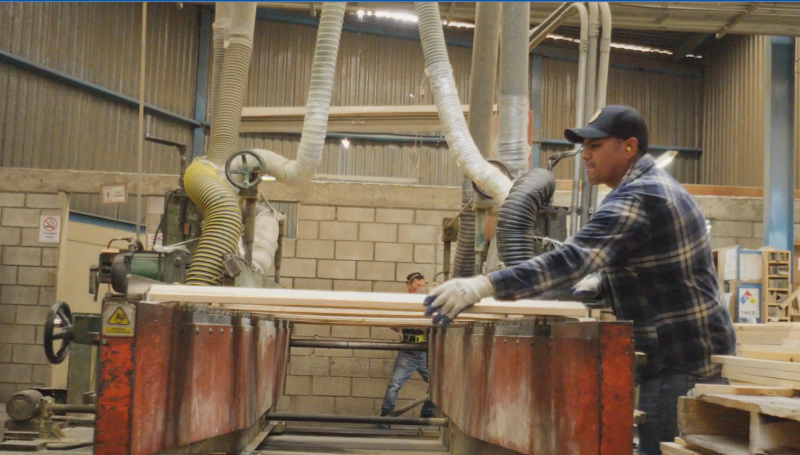
Yet he noted that while Progressive had inventory built up in the plant’s 250,000-plus-square-foot warehouse, it started to run low on some of the better selling goods “because we weren’t getting any production.”
Kendrick also attributes some of the dilemma to bad timing related to both the protest and the tariff situation.
“If this was six months ago, or six months later, I don’t know if we would have the same outcome,” he said. “It was just kind of the perfect storm.”
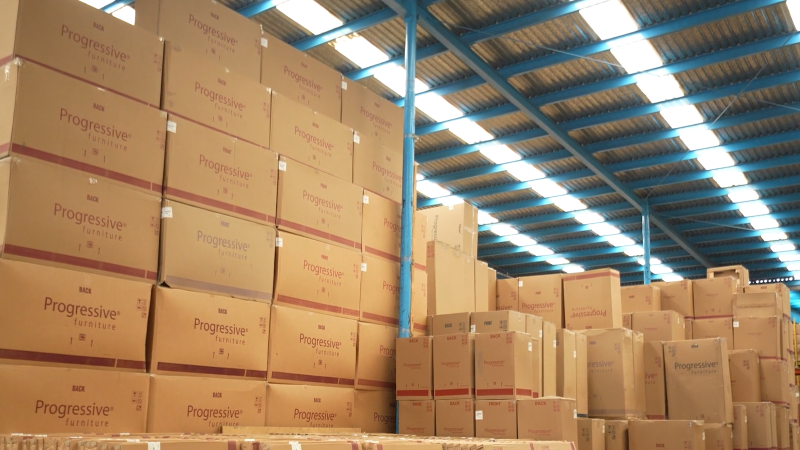
While the bulk of its sales have been from product made by Baja Wood, the company also sources other product throughout Asia, including Malaysia, Vietnam and Indonesia. Much of its dining and occasional, and accent furniture, for example, come from Malaysia.
Vietnam produces some accent furniture and outdoor furniture, while the company’s MacMotion seating line was produced in China, which already faced a 25% tariffs on goods including furniture that rose another 20% last month.
Kendrick said the company looked into sourcing more of the Mexico-produced line out of Asia, but noted that it would take a year before “we would have anything ready to go. We’ve kind of exhausted every possibility there.”
By the time that the company started thinking of these alternatives when Baja Wood ran into its challenges in January, it appeared to be just too late.
And with the economy being soft, it would be considered risky to start up sourcing in another country, even if the factories are hungry for orders. That is partly because retailers also are not as willing to take a chance, particularly on large orders, as they were in the past.
Plus, tariffs of 20% to 25% also are considered too steep for a lower-middle to midpriced line such as Progressive to either share with factories, absorb or pass along to customers
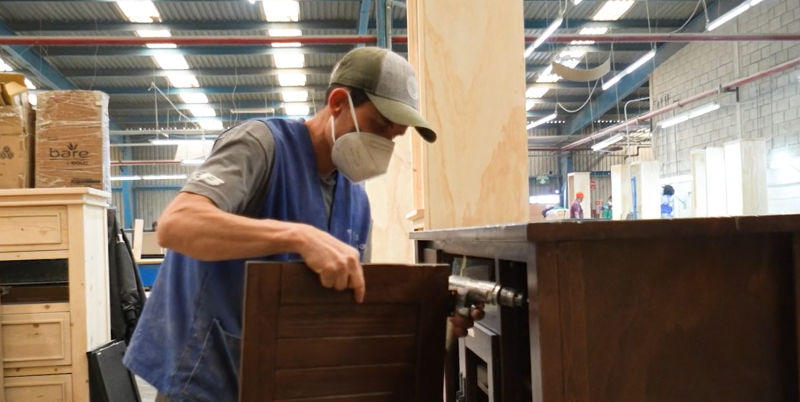
“I think at the end of the day, our end consumer just has no money,” Kendrick said. “They are tapped out on their credit, they have no money and they are struggling to buy a $17 burger that used to be $7. I understand that the higher-end business is decent still, but for anybody that is in this mid-to-lower price range it is just a struggle.”
Kendrick said that employees who plan to stay with the company have been granted a generous severance package, although an official closing date has not been determined. In an email to sales reps issued last week, the company said it plans to close by the end of the year.
“We will sell off all the inventory that we can along with equipment and things like that,” he said of the winding down of operations. “It could be October or it could be March of next year. It is a moving target, but the end of the year would be great.”





Hi Tom,
This is a sad situation. I’ve been down to Baha Wood and met with the family who owns it as well as with Dan. All of them are really nice people! They could produce solid pine furniture like nobody’s business.
Hope to see you in HP.
Take care,
Gil
Thank you for your response, Gil. It is a sad situation indeed and I hate to see the demise of Baja Wood and Progressive.
I do not agree with this.
Thank you for your perspective, Aaron. I would love to hear your thoughts. Feel free to reach out to me at tom@homenewsnow.com
Headline should be tRump voter won’t blame tRump tariffs but goes on to blame the increase in prices for business demise – wake up folks – this is what you voted for
Sure did. Maybe he should have sourced from inside this damn country. And we wonder why our country is going the way of the third world. With no manufacturing we have no real economy. Get over it and give it a chance and maybe you will be surprised.